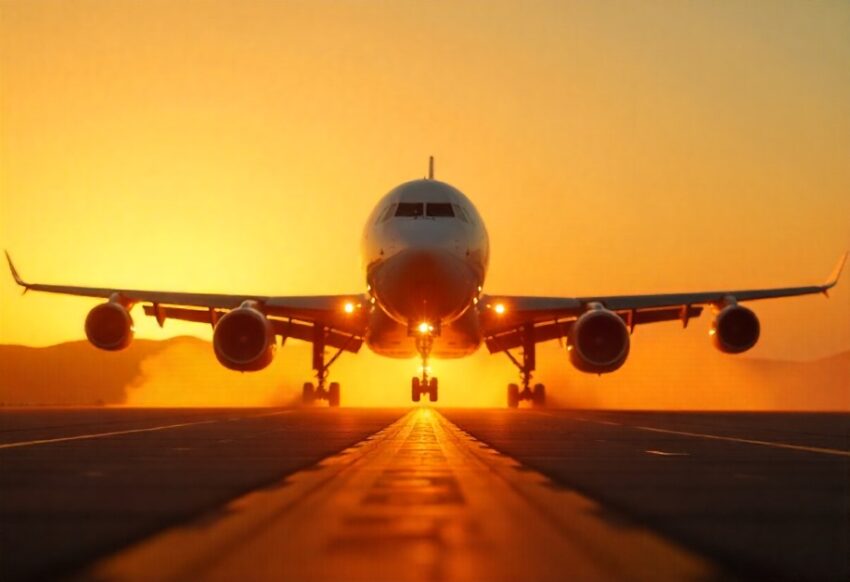Published on
August 27, 2025
By: Paramita Sarkar

Korean Air has signed a major purchase agreement with Boeing to acquire 103 aircraft, marking a significant expansion of its fleet. The deal includes 20 Boeing 777-9s, 25 Boeing 787-10s, 50 Boeing 737-10s, and 8 Boeing 777-8F freighters, with deliveries planned for the 2030s. This strategic agreement aligns with the airline’s long-term plan to modernize its fleet and streamline operations as it merges with Asiana Airlines and integrates its low-cost carrier subsidiaries under the Hanjin Group. The deal also includes spare engine agreements for its existing fleet and a 20-year maintenance contract with GE Aerospace. The introduction of new freighters signals Korean Air’s commitment to expanding its cargo operations. The agreement reflects the airline’s goal of simplifying its fleet to five aircraft types (787s, 777s, A350s, 737 MAXs, and A321neos), boosting efficiency and sustainability. As Korean Air strengthens its position in both passenger and freight markets, this deal with Boeing represents a critical step in supporting the airline’s growth and fleet modernization efforts for the coming decade.
What does the deal entail?
The purchase agreement is comprehensive, covering a range of aircraft types aimed at enhancing Korean Air’s fleet capabilities. Specifically, the deal includes:
- 20 Boeing 777-9s
- 25 Boeing 787-10s
- 50 Boeing 737-10s
- 8 Boeing 777-8F freighters
Additionally, the airline has secured spare engine agreements, including 11 GE90 engines for its existing 777 fleet and eight CFM engines for its 737s. Furthermore, Korean Air has entered a 20-year maintenance service agreement with GE Aerospace for a total of 28 aircraft.
Where will the aircraft be used?
The new aircraft will primarily serve to meet the expanding needs of Korean Air and its affiliate airlines under the Hanjin Group umbrella, which is undergoing significant changes. The carrier is in the process of merging with Asiana Airlines, one of South Korea’s other major carriers, and is also streamlining its low-cost carrier subsidiaries. The aircraft order is part of Korean Air’s long-term plan to modernize its fleet and replace older models with more efficient aircraft, preparing for increased demand in the coming decades.
When will the aircraft be delivered?
The aircraft ordered by Korean Air are scheduled for delivery in the 2030s, as part of the airline’s strategic growth and modernization plan. The exact timeline for the conversion of the purchase agreement into firm orders remains unspecified, with a final confirmation on delivery dates expected in the future.
Why is this deal important?
This substantial purchase from Boeing aligns with Korean Air’s efforts to streamline its fleet and maintain competitive advantages in the aviation industry. The deal underscores the airline’s intention to modernize and replace its existing aircraft with more fuel-efficient models, such as the 787s, 777s, and 737 MAXs, all of which are part of the airline’s broader goal of simplifying its fleet. This move comes at a time when Korean Air is merging with Asiana Airlines, a process that requires significant fleet consolidation and coordination.
The acquisition of freighters is particularly noteworthy. Korean Air, which had previously focused mainly on passenger aircraft, is now expanding its cargo operations with the addition of 777-8F freighters. This signals the airline’s readiness to capitalize on the growing demand for air freight, particularly in the wake of changes brought by the ongoing merger and consolidation in South Korea’s aviation sector.
How will this deal impact the airline?
The Korean Air deal with Boeing will have significant long-term benefits, positioning the airline for future growth and operational efficiency. The new fleet will allow Korean Air to enhance its network flexibility, providing a broader range of aircraft to cater to various routes, from long-haul international flights to regional travel. The 787s, for example, offer improved fuel efficiency, which will help the airline reduce its operational costs while contributing to its sustainability goals. Similarly, the introduction of 777-8F freighters will give Korean Air a much-needed boost in its cargo services, enabling it to compete more effectively in the growing global air freight market.
In addition, the airline’s integration with Asiana Airlines will benefit from the availability of newer, more reliable aircraft, helping to streamline operations between the two carriers. The fleet consolidation will also help with optimizing crew training, maintenance practices, and operational procedures across the merged airline network.
Conclusion
Korean Air’s monumental agreement with Boeing represents a bold step forward in the airline’s strategy for fleet modernization and expansion. The acquisition of 103 aircraft, including the cutting-edge 777-9s, 787-10s, 737 MAXs, and 777-8F freighters, is set to not only enhance operational efficiency but also support Korean Air’s broader objectives, including the ongoing merger with Asiana Airlines. As the airline moves into the 2030s with its new fleet, the deal promises to shape the future of South Korea’s aviation industry, ensuring Korean Air maintains its position as a major global player in both passenger and cargo services.







